Kamal Nath argued that Modi had 'overexposed himself': By constantly pushing his own image on social media and on TV, attaching his name to multiple promises, Modi had become the face rivals could easily blame for India's chronic dysfunction.
Ruchir Sharma reports from the election trail.
Illustrations: Dominic Xavier/Rediff.com
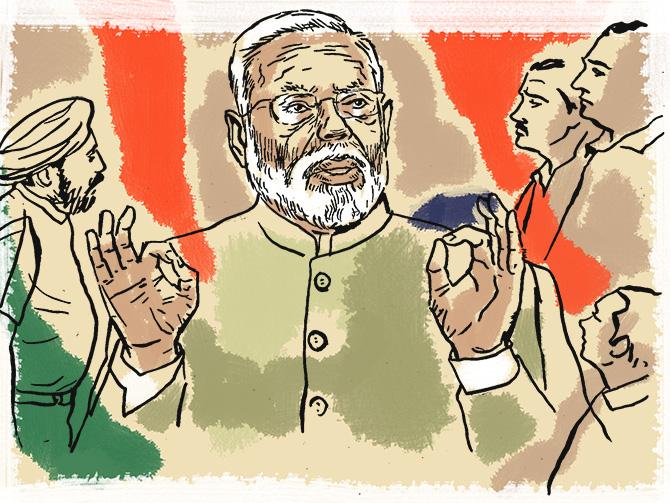
The sense that popular sentiment was turning against the BJP grew stronger when we left Bhopal for the bellwether constituency of Hoshangabad, 75 kilometres south.
Since there were only two serious contenders in Madhya Pradesh, the BJP and the Congress, the swing vote in MP was relatively easy to track, and Hoshangabad had voted with the winner in the last seven elections.
Voters in Hoshangabad, a small and nondescript city on the banks of the Narmada, had plenty of complaints about the government.
In the main market the owner of a clothing store said that the impact of Modi's demonetisation and the introduction of the GST had cut his business by 25 to 30 per cent.
A jewellery store owner described similar losses, and added that a subsequent hike in the tax on gold had added 10,000 rupees to the 5-6 lakh the typical family spends on gold for weddings.
With afternoon traffic backing up behind the construction zones on the highway, it took us nearly three hours to make the return trip to Bhopal, racing to a meeting with Congress leader Kamal Nath.
Nath greeted us at his house in Bhopal, and what caught our eyes first was the portrait gallery of Gandhis.
Many Congress leaders pay their respect by displaying photos of Nehru, Indira, Rajiv and Sonia, but I could not recall the last time I had seen one of Indira's younger son Sanjay, one of the orchestrators of the Emergency rule before his 1980 death in a plane crash.
Sanjay had befriended Nath at the Doon School in Dehradun and brought him into politics, and Nath clearly was not shy of embracing his lifelong ties to the most controversial Gandhi.
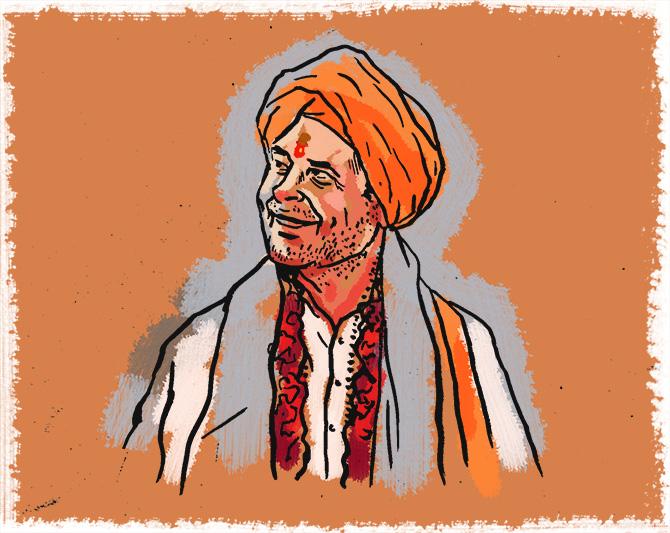
Dressed like most Congress leaders in kurta-pyjama, Nath spoke in the informal English typical of Doon grads, juggling calls on three mobile phones, pulling each one out of a different pocket.
He tossed in references to his visits to Davos and how, as commerce minister a decade ago, he had stood up for millions of Indian farmers by resisting concessions demanded by the United States in the Doha trade talks.
What impressed me about Nath at the time was his ability to charm the same American diplomats he was irritating at the negotiating table, by hosting them for dinners at one of his stylish homes.
Parties at his Delhi farmhouse were the talk of the town, yet Nath's reputation was that of a grass-roots politician and a staunch Gandhi family loyalist.
We asked Nath about the changing tactics of Congress leaders including Rahul Gandhi, who in recent years had become the first Gandhi to visit Ayodhya since the troubles of 1992.
Rahul had begun to advertise his Brahmin roots, to wear the sacred Brahminical thread, and to forcefully deny BJP charges that the Congress was a 'Muslim party'.
Nath for his part had built a towering statue of Lord Hanuman in Chhindwara, promised a cow shelter in every panchayat, and written an 'open letter' to Lord Shiva seeking his help in ending BJP 'misrule'.
Was the Congress responding to Modi by playing the Hindutva card themselves? Nath shot back that the BJP was not 'the sole proprietor of Hinduism'.
Nath said the momentum was turning to the Congress because the Modi magic wasn't working anymore.
Though Modi had pioneered social media campaigning, Nath said, the Congress was catching up, and he gleefully played for us a WhatsApp video that purported to show BJP leaders discussing the vast sums they were spending to buy votes.
Nath argued that Modi had 'overexposed himself': By constantly pushing his own image on social media and on TV, attaching his name to multiple promises, Modi had become the face rivals could easily blame for India's chronic dysfunction.
Our twelve-hour day ended over a sumptuous vegetarian dinner with local bureaucrats and journalists at the Bhopal family home of our travelling companion, Girish Agarwal.
I asked one guest, a senior bureaucrat in the BJP state government, about the problem of multiplying welfare schemes.
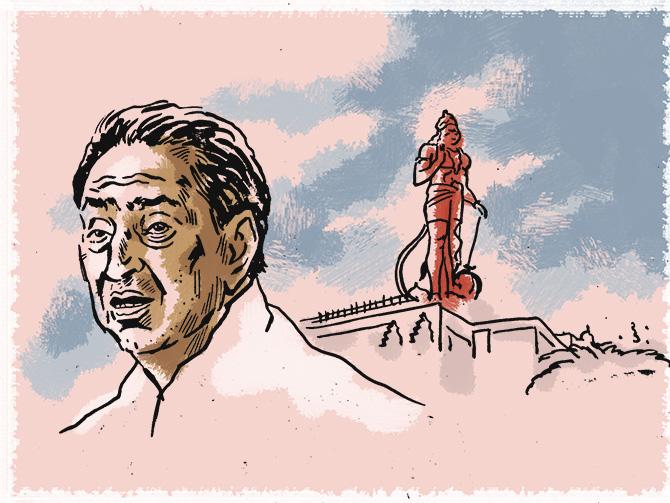
A few years earlier, the central government in Delhi had launched a count of how many schemes it had announced over the years, and how many were still active.
It had reached more than one thousand, and was still counting. No government wanted to cancel welfare benefits, and all of them wanted to keep launching new ones.
The bureaucrat said this generosity was overwhelming local administrators. The typical district magistrate had to administer hundreds of schemes at any one time, and execution would greatly improve if the government dramatically reduced that number.
He argued, for example, that Modi's 'Open Defecation Free' India campaign was getting intense focus from the prime minister himself, backed by advertising campaigns featuring film and sports stars, and as a result was making real headway against sewage-related illnesses that have stunted the growth of four in ten Indians.
The lesson was that the way to make schemes work is to launch fewer of them, and with more focus.
The rural share of the Madhya Pradesh population is even higher than the 70 per cent national average, and the distress in the countryside was palpable.
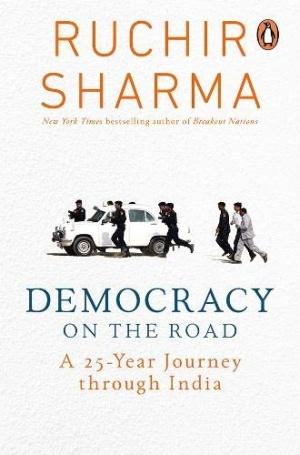
Our first stop in northern Malwa was a village in the district of Narsinghgarh, where we started to hear stories of poverty and deprivation that were both heart-wrenching and a bad omen for the incumbent party.
Villagers said they could not afford the 100 rupee bribe administrators charged for a voter ID card, so they went without.
A group of women complained that bureaucrats had charged a 10,000 rupee 'commission' to build public toilets required by the Open Defecation Free campaign, only few had been built, and those few were being used as storage sheds. They had no water connections.
The farmers of Narsinghgarh told us that the erratic electric supply disrupted their irrigation systems, and shrank their harvests.
Often power would come only during the night hours, when it was hard to see the venomous snakes lurking in the fields, and too dangerous to be messing around with irrigation pipes.
We had often seen inflation upend incumbent politicians, but as if to prove how precarious their hold on power can be, the BJP was now under steady fire for the opposite problem, deflation.
At a large market in the nearby town of Binaganj, farmers complained that demonetisation -- referred to in the Hindi heartland as the 'notebandi', or note ban -- was still hurting the cash economy, driving down demand for crops from soybeans to onions amid a strong harvest.
With onion prices collapsing to just 2 rupees per kilo, farmers had counted on selling to the government for the official support price of 8 rupees.
But the local administrators were giving them the usual run around, refusing to buy.
The farmers had no choice but to sell for 2 rupees, which they said was not enough to cover rising costs for urea and other materials.
A full two years after its midnight launch, demonetisation was growing less and less popular, and locals explained that their early hope was that some of the cash flushed out from under the mattresses of the rich would be used to their benefit.
Excerpted from Democracy On The Road: A 25 Year Journey Through India by Ruchir Sharma, with the kind permission of the publishers, Penguin Random House India.



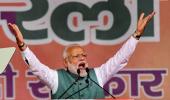







 © 2025
© 2025